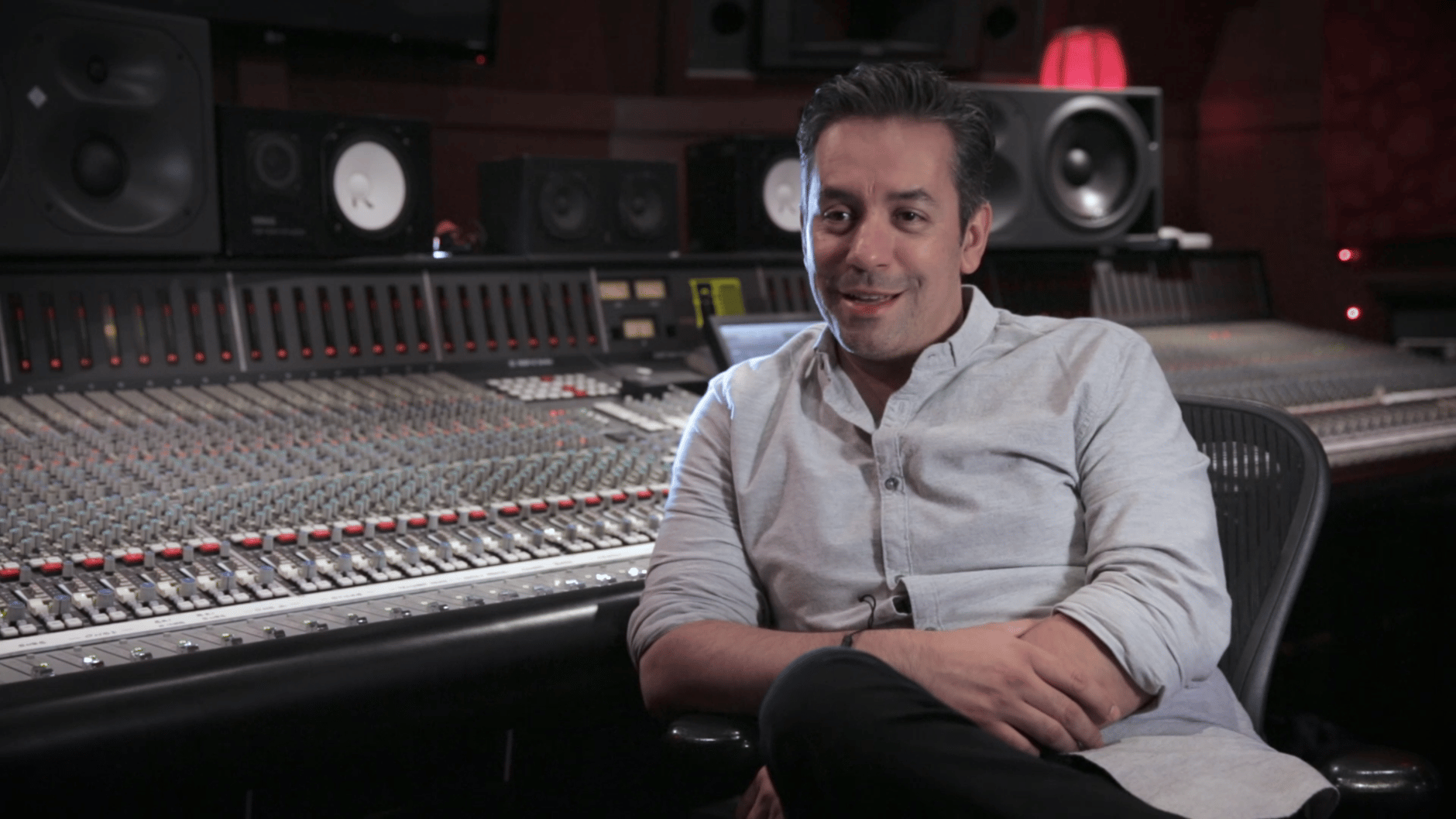Manny Marroquin - Producer / Mix Engineer

Sennheiser’s Pro Talk Series on YouTube features interviews with the industry’s most respected sound engineers, including eight-time Grammy Award-winner, Manny Marroquin, whose career began as a studio runner right after high school.

Marroquin, who credits his success to the adaptability of his engineering approach, has worked with a wide variety of artists – including 2Pac, Rhianna, Maroon5 and Whitney Houston, among many others.
“I don’t mix one genre, and I’m very proud of that because I can go from Kanye West to John Mayer, which are completely different genres,” says Marroquin, who jokes that he can mix anyone from LeAnn Rimes to Busta Rhymes. “Understanding artists and how they think, almost being one step ahead, it’s important. I like to stay true to the artist’s style. If I’m mixing Kanye, I want it to sound like Kanye. I don’t really have a sound or a style, I almost don’t want that because I don’t want to be pigeon holed into ‘that’s your style.’ I go for whatever the artist’s vision is and I try to adapt to that.”
As a mixer, Marroquin says there are a few paths that can be taken to achieve the balance he’s accomplished. “One is coming from the engineering side, another from the production side, then from the artist’s side,” he explains. “I try to be a balance of left brain-right brain. I feel like there’s engineers that only use their left brain and there’s engineers who only use their right brain. To be able to have a combination of those two is great.”
Along the way, however, Marroquin learned one very vital lesson. “I stopped listening to anything after it leaves here (the studio), because I was always disappointed,” he says. “That used to keep me up at night, so I adapted to ‘once it’s done, it’s done’ and I have no control over it. What that taught me is that quality time is important. If you’re mixing for an hour, make it the best you can. That’s good advice for anyone; for example, if you’re a dad for three hours, be the best dad. Quality time, so you don’t have to go back and regret any of your decisions.”

Using time wisely and efficiently is especially important in a demanding industry like music production. “No one hands you anything in this industry, and if they do, you’ve still got to prove yourself over and over again,” continues Marroquin. “You’re only as good as your last mix. So, you have to work for it. You have to have dedication. And you have to be passionate about it. But, you also have to have good people skills. I treat people the way I want to be treated. Once the dust settles in the studio, I want to be treated well, and I almost demand it; it’s amazing how that comes right back.”
“I didn’t even know Neumann made monitors,” he recalls of his first encounter. “I’ve got to be honest. I didn’t want to admit to it but, I really fell in love with the KH810 monitors. The studio put them up and I immediately fell in love with them. I fell in love with that sound. I can abuse them and still have an awesome sound.”
“I didn’t even know Neumann made monitors,” he recalls of his first encounter. “The studio put them up and I immediately fell in love with them. And, I’ve got to be honest, I didn’t want to admit to it. But, I really fell in love with the KH810 monitors. I fell in love with that sound. I can abuse them and still have an awesome sound.”
All things considered, Marroquin says that the best advice he would give a new engineer is “to just keep being a music fan. In school, they teach all of us how to fix the equipment, the plug-in, etc.; it’s about the tools. But, it’s not the tools that make us – these are tools for us to utilize them, not the other way around. Somewhere along the way, you kind of forget that the reason you got into this business is your love for music. I think that, at some point, we all forget that, and we just have to remind ourselves that we should be music fans. I’m a bigger fan today than I’ve ever been, and I think that’s really important.”




